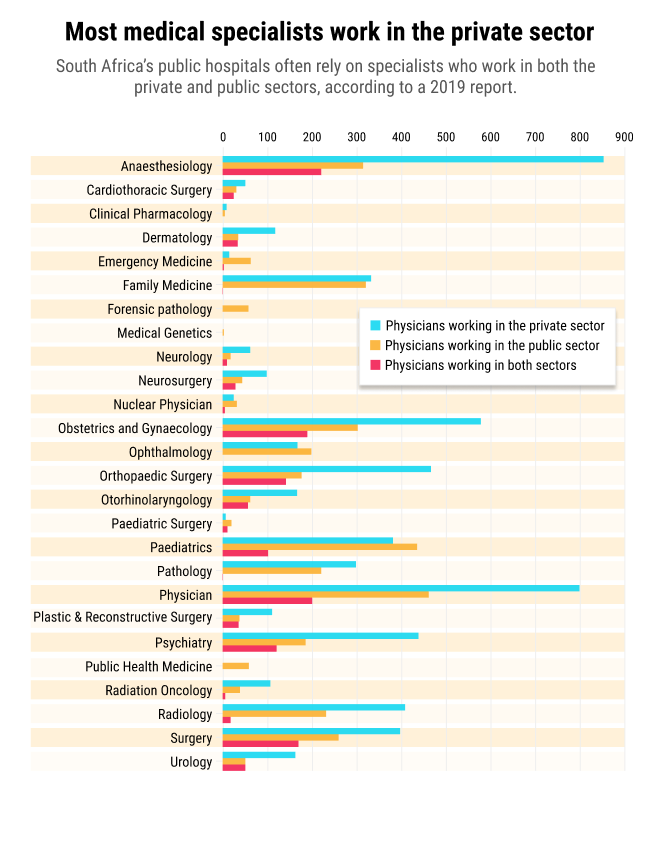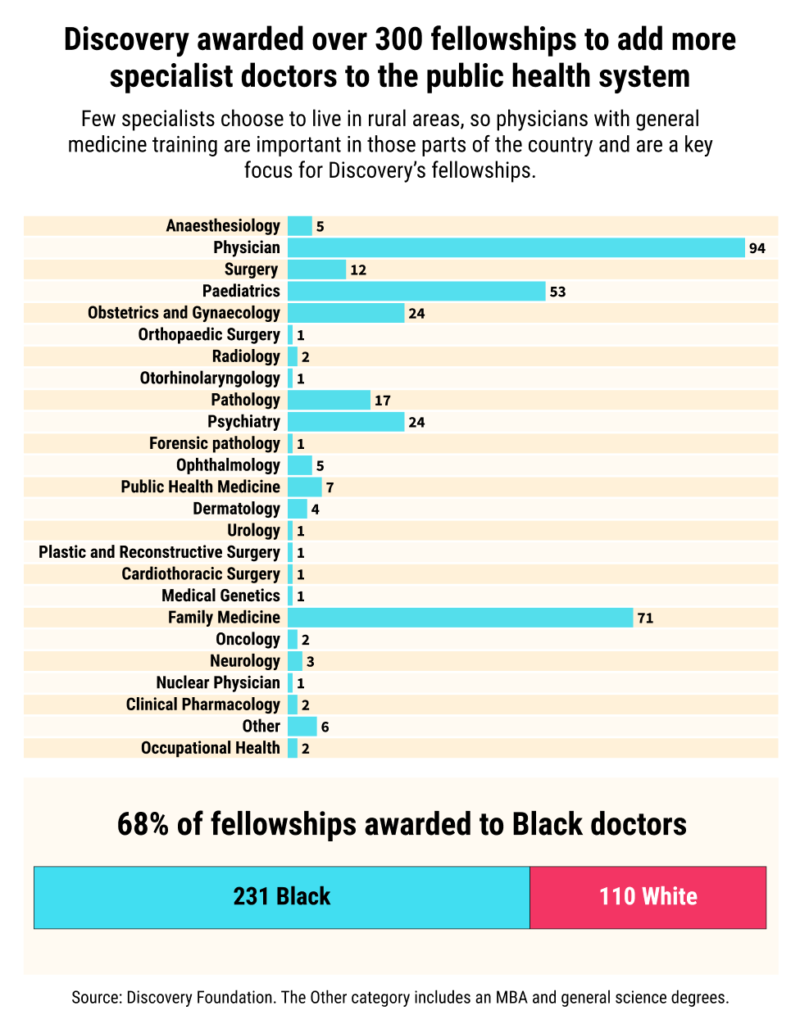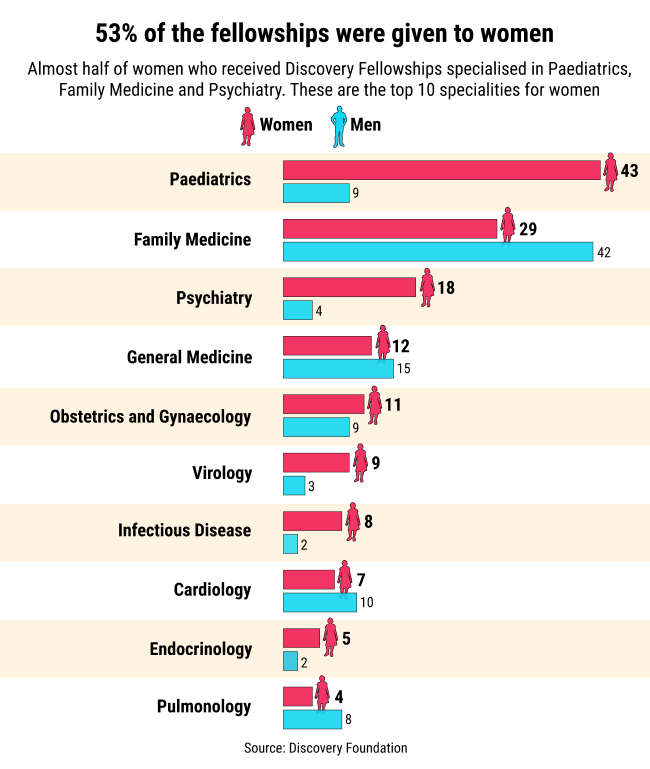Dr Vincent Maphai, chair of the Discovery Foundation
Of the many lasting impacts of the Covid-19 pandemic was the exposure of how healthcare systems globally are equipped for crisis. In South Africa, it was definitely an indicator of our healthcare capabilities, an unveiling of what works and what needs to work better.
There are parallels, too, between the roll-out of the country’s vaccination programme and universal healthcare says Dr Vincent Maphai, chair of the Discovery Foundation. “I certainly see the vaccine rollout, which is on a progressive path, as a microcosm of how universal healthcare will work in South Africa… because it has to. The vaccination programme is reliant on partnerships between the public, private and non-governmental sectors. Similar relationships are critical to achieving universal access to quality healthcare — a basic human right that we must achieve,” he says.
Where are we in addressing medical skills shortages?

Minister of Home Affairs, Dr Aaron Motsoaledi, published a 2021 Critical Skills List detailing more than 100 skilled occupations that South Africa urgently needs to fill. The list includes a critical shortage of health sector professionals, including general medical practitioners and registered nurse specialists.
An estimated 97 000 more health workers will be needed by 2025, and billions of Rands in additional investment will be required to reach an equilibrium where there is a sufficient number of doctors to treat a growing number of patients.
“Research by the Discovery Foundation in 2019 tells us that currently in South Africa there are seven specialists per 100 000 population in the public sector and 69 per 100 000 population in the private sector, with an average national level of 16.5 per 100 000. This is low, relative to other upper-middle-income countries. By comparison, Turkey has more than double the number of specialists, and Cuba has eight times more specialists per 100 000 than South Africa, according to OECD data. The United Kingdom’s figures are three times higher,” says Dr Maphai.
“In addition, our projections show that while the number of specialists is expected to more than double by 2040, this still falls way short of South Africa’s needs.”
It is for this reason that the Discovery Foundation currently funds up to 10% of the subspecialist posts in South Africa. The Foundation has also made strides to reach its target of awarding at least 75% of its annual grants to black recipients as part of its transformation strategy,” he says.
A decade of partnerships to strengthen medical resources

In the past 10 years, the Discovery Foundation, an independent trust tasked with the objective of investing in human resources in South Africa’s public health sector, has invested over R261-million in grants to support academic medicine through research, development and the training of nearly 500, predominantly black, medical specialists in South Africa for the public sector.
These grants include scholarships, bursaries, research fellowships, and support for teaching and research institutions to strengthen the country’s healthcare workforce. “It is important to note that Discovery Foundation grantees commit to servicing the public sector for at least two years after completing their training. However, our research shows that more than 60% of our alumni continue working in the public sector even after their contractual requirement has lapsed. Many serve as academics, training new specialists,” says Dr Maphai.
In 2020, the Discovery Foundation awarded R24.5-million in grants to boost academic, specialist and rural medicine in areas of critical need. These grants were based on data that, by 2040, key healthcare areas such as cardiothoracic surgery, forensic pathology, neurosurgery, otorhinolaryngology, radiology, public health, and surgery will be in urgent need of specialists. Feminisation in the specialist field is also a key area of interest. “Soon, we will announce the 2021 recipients, which no doubt will be another special cohort of doctors wanting to make an impact,” says Dr Maphai.

Bringing specialist research home
Dr Maphai adds that a special award is included in the Foundation’s cohort of doctors every year. Since 2013, a South African doctor working in the public sector has been chosen for a year-long fellowship at Massachusetts General Hospital, the largest teaching hospital of Harvard Medical School based in Boston in the United States. The Discovery Foundation MGH Fellowship Award is an opportunity of a lifetime for a doctor to learn from the world’s top medical specialists and an opportunity to conduct cutting-edge clinical research.
“However, while the Discovery Foundation MGH Fellowship Award is aimed at helping to develop the next generation of leaders in academic and clinical medicine, the broader aim is for better healthcare for South Africans and citizens globally,” says Dr Maphai.
The 2020/21 recipient, Dr Sumy Thomas, will focus her research on the endocrine system of patients affected by HIV and AIDS. This will be invaluable to the 7.7-million South Africans on antiretroviral treatment, he adds.
Nurturing future medical professionals
An ideal landscape of medical professionals in South African should present as sufficient specialists for the country’s population, but also feature a demographic representative of the country — across race and gender dynamics. Feminisation of the specialist sector is another focus area of the Foundation, highlighted by the graphic below.

“What is needed is a collective effort by the public, private and non-governmental sectors. My appeal is for corporate South Africa to prioritise improving access to education to strengthen our healthcare system for the collective good. In my tenure at Discovery, I’ve learnt that this is not a simple exercise, and we have had numerous learnings over the last two decades, but the data shows that change is underway and definitely possible,” says Dr Maphai.
Data presentation: MediaHack Collective
